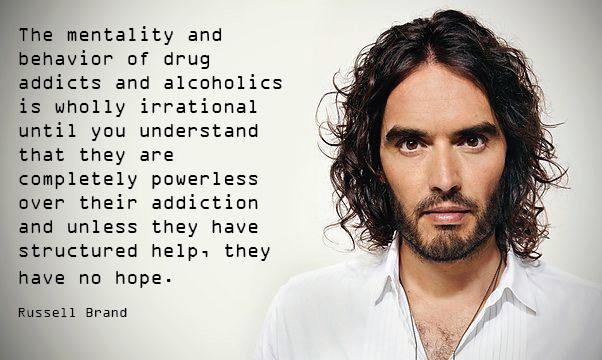|
Denial is a form of distorted thinking. In fact, it is a masterpiece of distorted thinking. Breaking through denial marks the beginning of addiction treatment. This is just as true for sexual addiction and behavioral addictions generally as it is for chemical dependency.
Without treatment, the set of ideas, rationalizations, and beliefs that constitute a system of denial become more and more entrenched and tend to spread, becoming a world view which supports a deceptive and disordered way of life.
Even for a practicing sex addict, there are moments of clear-headedness when he or she suspects that they are engaging in a problematic or pathological pattern of behavior. But that awareness does not hold up. Why? Because denial is distorted thinking in the context of a semi-dissociated (i.e. “checked out”) state. The distorted thinking creeps back in when dissociation provides an opportunity. And the greater the awareness in recovery, the greater the dissociation needed to overtake it. But let’s begin at the beginning.
Denial During addiction
Addicts in the grip of an addiction have a set of beliefs that support that addiction. That is beliefs which protect them from the need to examine their behavior. These can look absurdly deluded to a non addict. When challenged in any way, the practicing addict uses these ideas or “theories” to defend against the idea that they have a problem.
These may take many forms such as rationalization:
- “It’s normal behavior”,
- “It’s harmless”,
- “I need it”,
- “I have a high sex drive”,
or minimization:
- “Everybody wants what I want”
- “I’m not that bad”,
- “I’m cutting down”,
- “It’s not bad enough to need treatment”
or projection:
- “So-and-so is the one with the problem”,
- “I’m being judged unfairly”,
- “My wife/husband makes me the way I am”
The practicing addict at this point is considered to be in the stage of “pre-contemplation” in the stages of change framework, meaning they have not even consciously contemplated the idea of change.
Usually, something rather dramatic happens to bring the addict to the point of contemplating change. The sex addict may be found out by a partner, lose a job, neglect a career, get/transmit a disease, become impotent in intercourse (as happens with many teen porn addicts) or get arrested. At that point, the addict may begin to suspect that the behavior is destructive and compulsive. But this dawning awareness is not enough to impact the addiction in the long run. Neurologically, addiction is a pathological form of learning. The distorted thinking which surrounds it provides a powerful undertow. If the crisis somehow passes without the addict getting some serious help, the behavior will return.
Denial in Early Treatment
The addict who has actually made an initial foray into treatment will often come up with a different set of distorted beliefs. These beliefs serve to justify the addict’s natural urge to escape from treatment. These may involve ideas like
- “Maybe sex isn’t really an addiction”
- “I’m not sure I belong in this kind of treatment”,
- “Treatment is ineffective”,
- “Treatment works for other people but not me”,
- “I tried it once and it didn’t work”,
- “I’m hopeless so why bother.”
In early recovery, the addict tends to be in crisis. His or her world feels like it is crumbling and the addict is prone to extreme emotions. Emotionality can stand in the way of rational thinking and rational examination of the situation. With treatment, the addict’s delusional beliefs are challenged and he/she gradually replaces them with more reality based thinking and becomes more fully engaged in recovery.
Denial and dissociation in relapse
Dissociation is a mental state in which some of our rational decision-making and impulse control functions are off line. What seemed like a terrible idea this morning can seem like a great idea tonight. What we rationally knew is no longer engaged; we are no longer mindful i.e. we are not present. And in place of rational self-awareness is a set of thought distortions that make no sense but which we are unable to critically examine.
The dissociated or semi-dissociated state then becomes the context in which the delusional thinking can lead the addict into acting out. This context is one in which decisions are not realistic, consequences are not considered and impulses reign supreme.
Some examples of the kinds of circumstances and thought patterns that lead to this dissociation and to “slips” and relapses might be:
- Alcohol or drugs which lead to an altered “I don’t care” state. The higher centers being temporarily offline makes way for the distorted thinking and addictive behavior.
- Being alone with no one around to inject a note of reality into the situation. In this situation pessimism and self-put-downs can take over; the addict “forgets” that he has people he can call; he grabs for relief.
- Being in stressful or unfamiliar situations such as business travel which can feel disorienting and threatening. This makes it difficult to hold onto a mindful, self-directed state. The addict may find it easy to slip into unreality.
Dissociation is the opposite of mindfulness. Any situation which threatens the addict’s ability to return to a mindful, self-aware state can open the door to thoughts and behaviors that make no sense. Is it any wonder that the core mindfulness skills we stress so much in treatment are ones that must be practiced and reinforced even into the later stages of recovery?
|

 Still Clean
Still Clean





